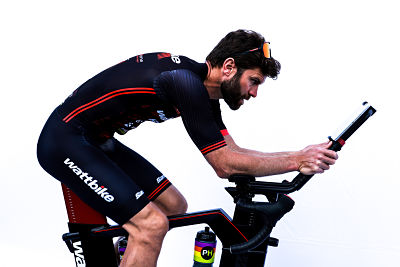The last three years have been tough for many reasons and have inevitably led to some of us going through rough patches where we've struggled to find motivation for training.
This article isn't about avoiding those rough patches but rather facing them head on and applying a few principles for developing habits that can help you emerge from a difficult period...
The Mosquito Effect
It can be tricky to see your way out of a rough patch. You look for big actions that can make a big difference but these can seem daunting and often unreachable. It really is the small things that can add up to make a big difference.
Consider the fact that a mosquito is less than 1% the size of you, but it can keep you awake, make you itch and to be extreme, kill you. Think small things can't make a difference? Think mosquito effect. This ethos around marginal gains was cited as a key reason behind the success of Dave Brailsford's work with British Cycling and Team Ineos.

When developing and redeveloping habits, we want to take into account both the 1% gains we can make and the 1% losses we can remove. When considering habits, it's worth beginning by analysing how you start and finish your day. What are your screen time, eating and exercise habits?
Rough patches often mean stressful situations that have us locked onto screens to 'monitor' them. It's important to consider what's taking up your bandwidth and whether it really needs your attention.
Make small changes
In the current climate, many people are understandably hooked to the news to keep abreast of the next headline. But is it helpful to check those before we head out for the early morning run we promised ourselves or before we get tucked up in bed? Probably not.
So, the 1% move here is to avoid looking at your phone as soon as you wake up or during that last hour before you go to bed. It's a small change but can genuinely make a big difference.
Rough patches usually come with a need to elicit dopamine to make us feel better. Naturally, food can bring huge dopamine responses before we have even eaten a mouthful. Planning out your week of food can remove the 'surprise' our dopamine hungry brains love and keep levels much smoother, thus helping to see food as your fuel and not your emotion controller.
Along the same lines as food and news flashes, exercise can also trigger many emotions in us. When emerging from a rough patch, be hyper-aware of how you might be thinking. We can get ourselves into trouble all over again by setting goals out of our reach or the exercise bar a little high. 'I'm going to go to the gym every day' isn't an exercise goal, nor is entering an IRONMAN race that's one month away if you're just returning from an injury.

Seeing exercise as your partner in getting better is far more productive in these situations. Who do you enjoy exercising with? If it's a friend, then be willing to try what they're doing and go to the workout with the goal of spending time with your friend and outside, rather than focusing on burning calories or working up a huge muscle burn that puts you off exercising again the next day.
If you enjoy exercising alone then do just that, avoid crowded sessions that may increase stress or data-focused workouts that you can compare with others or your previous self.
Exercise is about raising your heart rate above baseline which has positive knock-on effects on your metabolism, hormones and cardiorespiratory system. Interestingly, Non-Exercise Physical Activity (NEPA) like going for a walk has shown to be a more important indicator for health than exercise by itself. It doesn't need to be about numbers, winners, losers or selfies. It can simply be about being outdoors and moving.
If you're struggling to find motivation for training at the moment, try to focus on these three things:
- Small differences can make big changes
- Make a plan that you're in charge of
- Avoid comparisons
